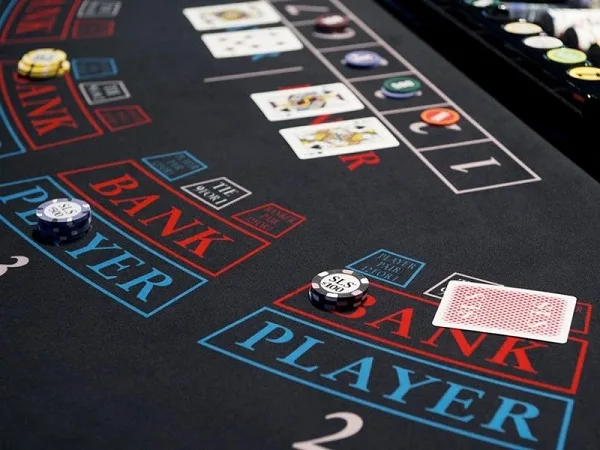Baccarat Strategy Guide: Master the Art of Winning Today

Welcome to our extensive guide on mastering Baccarat, one of the most intriguing and sophisticated card games found in casinos worldwide. This guide is tailored for both beginners and seasoned players looking to refine their strategies and increase their chances of winning.
What Kind of Game Is It, and Who Invented It and When?
Baccarat, often associated with glamour and exclusivity, has a rich history that dates back to the gambling salons of France and Italy in the 15th century. The game’s origins are somewhat disputed, but it’s widely acknowledged that it was created by an Italian gambler named Felix Falguierein. Baccarat quickly spread across Europe, becoming a favorite among the French nobility. Unlike many other casino games, Baccarat’s appeal lies in its simplicity, elegance, and the slight advantage it offers to players, making it a unique offering on the casino floor.
The game has evolved into several variations over the years, including Punto Banco, Baccarat Chemin de Fer, and Baccarat Banque. Punto Banco, the version most commonly played in casinos today, strictly adheres to the rules of the game, with players competing against the house. The objective remains consistent across variations: to bet on the hand closest to a total of nine.
Rules for Playing This Game
Understanding the Basics
The essence of Baccarat lies in betting on two hands dealt on the table: the ‘Player’ and the ‘Banker.’ Each hand receives two cards, with a possibility of a third card being drawn. The winning hand is the one that totals closest to nine. Importantly, only the last digit of the total counts (a 15 totals as 5). The game begins with players betting on either the Player, Banker, or a Tie.
Advanced Rules
In addition to the basic rules, understanding when a third card is drawn is crucial for strategizing. This decision is automatic, based on the totals of the first two cards. For instance, if either hand totals eight or nine (a ‘natural’), no more cards are drawn. The rules for drawing a third card vary slightly between the Player’s and Banker’s hands, adding a layer of complexity to the game.
Betting Strategy
Baccarat offers one of the lowest house edges in the casino, particularly when betting on the Banker. However, it’s essential to understand the odds and the slight commission charged on Banker bets. Effective money management and knowing when to walk away are crucial components of a successful Baccarat strategy.

Differences from Other Card Games
Baccarat stands out among other card games for its simplicity and speed. Unlike poker or blackjack, Baccarat does not require complex strategies or decision-making during play. The game’s outcome relies heavily on chance, with a minimal house edge, offering players a fair chance at winning. This distinguishes it from games where players compete against each other, or the dealer’s skill significantly influences the outcome.
Furthermore, the social aspect of Baccarat, especially in its traditional form (Chemin de Fer), involves direct competition against fellow players, which adds an element of camaraderie not found in machine-based games. The ceremonial aspect of card dealing in Baccarat Banque and Chemin de Fer variations adds to its allure, making it a unique and engaging experience.
Tips for Beginners on How to Play
For those new to Baccarat, starting with Punto Banco is advisable, as it requires no strategic decisions after the initial bet. Observing a few games before playing can help newcomers get a feel for the game’s pace and procedures. Betting on the Banker is generally considered the safest bet due to its slightly lower house edge. Setting a budget and sticking to it is essential for a satisfying and responsible gaming experience.
Understanding the odds and how the third card rule works can also give players an edge. While Baccarat is largely a game of chance, familiarizing oneself with the game’s nuances can enhance the playing experience and potentially lead to more consistent wins.


